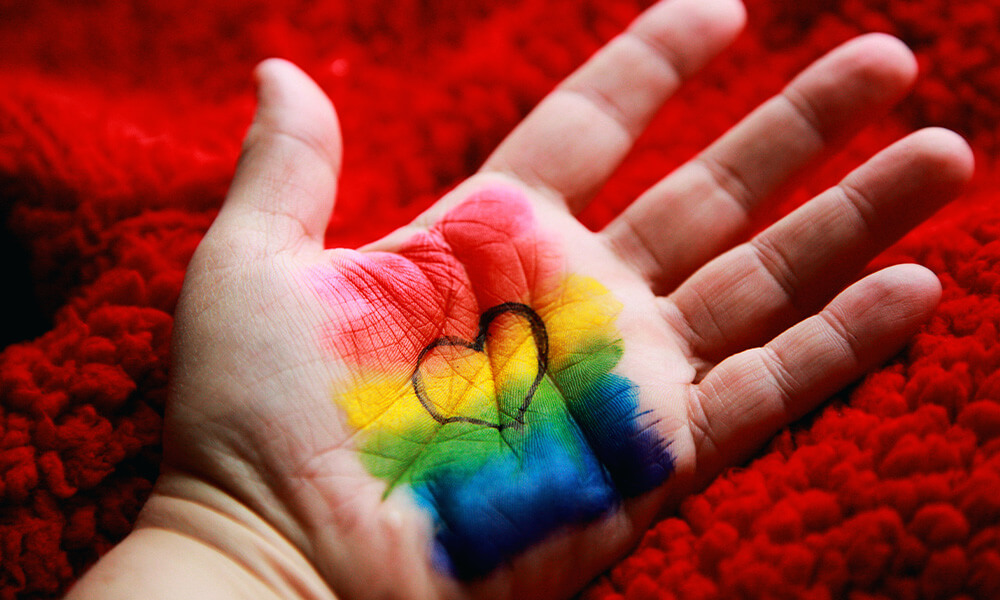In honour of Pride, Zeynep Livatyali-Esen details her own experiences with bi-erasure, coming out and having the bravery to ‘externalise the eye-rolls’.
I am very aware that what I am about to say may sound very counterintuitive, so let me first start by stating my credentials for this topic, as is now customary in this very charged society. I am an openly bisexual woman who has been in happy and committed relationships with both men and women. I did not always identify as bisexual, and actually depending on whose company I am in often prefer to not use the term due to various misunderstandings of the word that can lead to bi-erasure. Instead, I prefer using other terms that are less easily contested.
Bi-erasure aside, something that I have noticed more in recent years is just how commonly the phrase ‘your sexual orientation doesn’t matter’ is used. Now, I do know where people are coming from when they say this and I truly appreciate the sentiment - of course, in an ideal world, one's sexual orientation should not be a determining factor in how they are treated or perceived. Confusingly, I will even contradict myself to say that the phrase can sound very comforting and reassuring to hear from close friends and family. But my caveat is this: there is a very real reason why people feel the need to clarify ‘it doesn’t matter’. In every country in every corner of the world, there are those who feel strongly that people’s sexual orientation does matter, and they have very specific thoughts about what it should be. Thankfully, it might not be a big deal for you but by dismissing someone’s sexual orientation, you also inadvertently dismiss the challenges, discrimination and unique journeys that individuals within the LGBTQ+ community face, and the opportunity for empathy, understanding, and support is missed. We are not yet in a world where LGBTQ+ issues are gone from society - there are quite a few countries that are regressing in terms of their stance towards the LGBTQ+ community, including Western countries like Italy and the USA. This is why huge events like Pride are still so important, as it validates a person’s identity whilst also providing a safe space. Pride is also a timely reminder that we still have a long way to go, but it is worth the fight.
I am relatively lucky to live in a country which has legislative protection for my sexual orientation. However, this doesn’t mean that everyone in this country will treat me the way they should. It is so surprising how much a disapproving look from a stranger will hit you when all you are doing is holding your girlfriend’s hand in public. Somehow, it hurts even more than the catcalling. However, that is by no means the worst thing I have experienced because of my sexual orientation, and no doubt there will be many future challenges that lie ahead for me. Inappropriate phrases like: ‘bisexual – does that just mean you haven’t decided yet’ ‘you probably haven’t met the right guy yet’ and ‘so you’re just greedy then’ are loaded with microaggressions, and each in turn triggers a very big internal eye roll from me. Aside from just being plain ignorant, you would think people would come up with something more original by now.
But really, the point is that instead of internalising my eye roll, I probably should have politely said something at the time. Nothing made me realise this more than having been in a recent situation where a close family friend, who is much younger, put their trust in me and told me they were gay. They hadn’t done so to the rest of their family, nor did they have any plans to. I wasn’t prepared for the distress in their eyes and in that moment, I suddenly had a huge feeling of guilt. Why had I been complicit in letting ignorant comments pass by? Had I been braver in the past and externalised my eye rolls when hearing such comments, maybe I might have opened someone’s eyes fractionally wider. Maybe this would have saved the world from one less inappropriate comment in the future. Maybe it might not have found its way to my friend, but someone somewhere could have felt slightly safer coming out because they hadn’t heard all the usual comments and microaggressions.
Of course, it’s not just my responsibility to create a more accepting world, but when my friend said ‘Please don’t tell anyone’, I couldn’t help but feel like in the past I should have done more. To my friend who trusted me, and to others who may be able to resonate with some of the things I have shared, I want to say that your sexual orientation matters very much. There are those in the world that will try to bring others down, and there is no doubt that my friend will, unfortunately, have to encounter these people at some point. Rather than someone’s sexual orientation ‘not mattering’ to you, the best thing to do as a supporter and ally is to stand by them, let them know that you are on their side and that you will defend them whenever someone tries to challenge who they are. Be steadfast in your support – their sexual orientation does matter, but it doesn’t change a thing.




